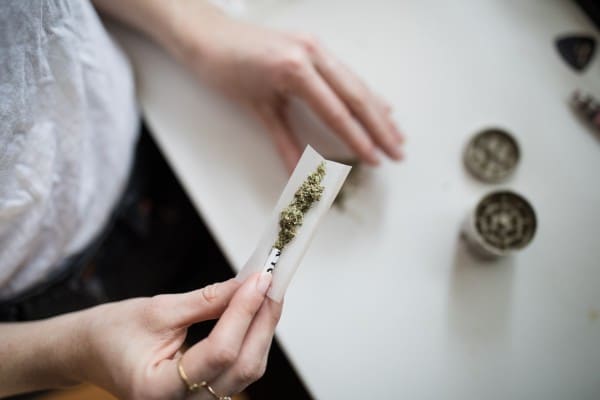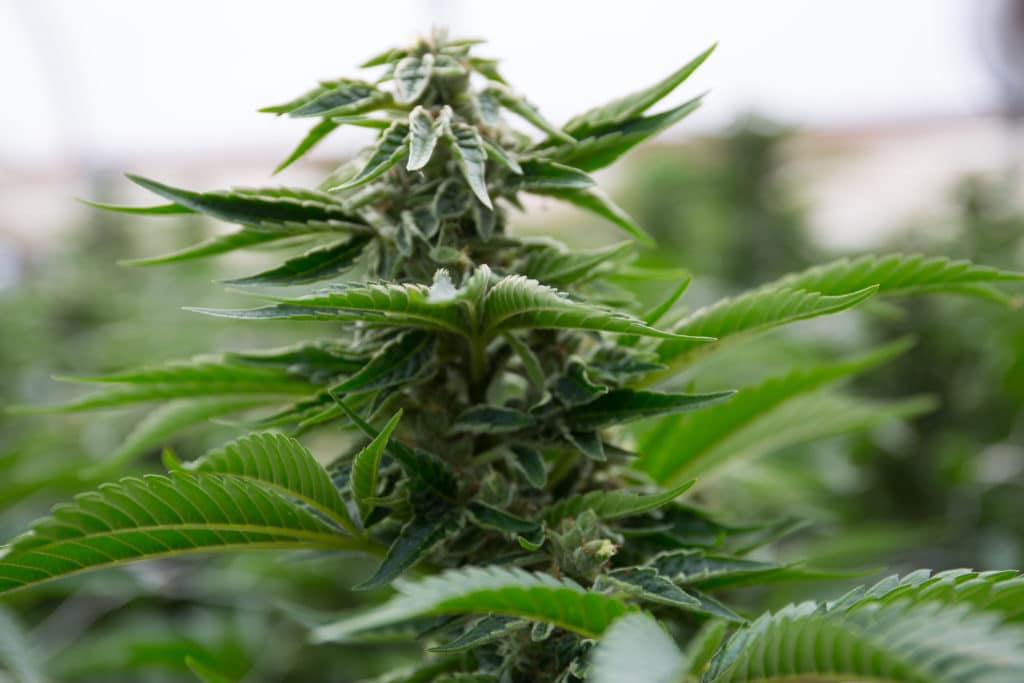
Bisphosphonates are a class of drug used to help slow or prevent osteoporosis, the natural bone thinning that comes with age. They can also be used to treat bone-related cancers, specifically those causing bone damage like multiple myeloma and metastatic bone disease, and are recommended for women entering menopause to help prevent bone loss.
While people have used these treatments for decades, originally discovered in the 1960s, it wasn’t until 2003 that BRONJ was observed and linked directly with the use of bisphosphonates. What is BRONJ and could medical cannabis be a practical treatment for this condition?
What Is BRONJ?
BRONJ, or bisphosphonate-related osteonecrosis of the jaw, has been found to cause osteomyelitis — lesions that form on the jawbone. This condition was first observed in the 19th and 20th centuries, then called phossy jaw or phosphorus necrosis, but it wasn’t until 2003 that it was linked directly to the intravenous use of bisphosphonates. During the early 20th century, it was most often observed in match factory workers who were exposed to yellow phosphorous — the heated fumes were essential in the creation of strike-anywhere matches that became popular during that time.
Today, safety regulations prevent workers from exposure to heated phosphorus fumes, but that hasn’t stopped patients from suffering from BRONJ after treatment with bisphosphonates. The condition causes the bone in the jaw to die off because it is unable to heal. This death of bone tissue continues to remain a problem long after the bisphosphonate treatment ends.
Cannabis and Dental Health
Medical cannabis has been touted as a treatment option for a variety of different conditions, from cancer to glaucoma to anxiety. One thing that it might not be good for is your teeth and dental health. Studies have shown that smoking marijuana for an extended period of time — in this case, a 20-year study period — can cause gum disease and tooth loss.
Gum disease frequently happens in middle age, in spite of good dental hygiene practices, but smoking marijuana has linked to a possible increase of it happening earlier in life.
Smoking marijuana also presents the same problems as cigarette smoke — tooth staining, in particular. Does that mean you should avoid cannabis if you suffer from BRONJ? Not necessarily.
Cannabis for Bone Health
While smoking a joint isn’t good for your dental health, some of the compounds in marijuana could potentially treat BRONJ and other bone disorders in the future. A 2015 study by the Tel Aviv and Hebrew Universities found that cannabidiol (CBD) — the nonpsychoactive component in cannabis — might help improve bone health after a fracture, helping the bone heal faster and stronger than it was before.
Normally, when you break a bone, your body will bridge the two broken pieces with a cartilage growth known as a fracture callus. In rats, an injection of CBD helped them heal a broken femur faster than their untreated counterparts — and the bone was less likely to break again because the fracture callus was much stronger. It is estimated that the bone in the rats treated with CBD was between 35 and 50 percent stronger than the bones in the untreated rats.
CBD also helps to block the enzyme that causes bone breakdown. These fatty acid amides or FAAs are broken down by an enzyme called FAAH — this is what contributes to things like osteoporosis, and potentially to the cascade failure of other skeletal conditions like BRONJ. CBD blocks the FAAH enzyme, preventing it from creating the compounds that break down the bone cells.
A 2011 study published by the British Journal of Pharmacology theorized that the use of CBD could treat these conditions by preventing the body from making the bone deconstruction compounds in the first place.
What Does This Mean for BRONJ?
While cannabis can help improve bone health in many patients, what does this mean for individuals suffering from BRONJ?
It’s hard to say at this point.
While plenty of studies have been completed, and more continue, looking at the effect that medical cannabis has on bone health and regeneration, no one has taken a close look yet at the effects that cannabis could have on BRONJ. Plus, the fact that smoking marijuana has detrimental effects on dental health could keep researchers from taking too close a look at this potential treatment option.
If you live in a state where medical marijuana is legal and choose to utilize it for your BRONJ symptoms, it is important to discuss it with your dentist first. He or she may have other recommendations and will probably give you very specific instructions to help you maintain your dental health during this treatment. Maintaining your dental hygiene is essential to prevent other problems from occurring while you still deal with the problems of BRONJ.
It also may be in your best interest to skip the smokable marijuana in favor of a CBD only oil. The studies thus far have suggested that CBD is the best active ingredient for bone health, so if you don’t need or want the psychoactive effects of the drug, a low to no THC oil could be the ideal choice.
More research is needed to ensure that medical cannabis is a good option for the treatment of BRONJ, but the research into marijuana’s effect on bone health looks promising. It could potentially be an effective treatment for things like bisphosphonate-related osteonecrosis of the jaw and other bone deficiencies, especially if medical cannabis becomes legal across all 50 states.
Again, before you start any sort of treatment plan, make sure you discuss it with your dentist and/or your physician. We are not medical professionals, but from what we can see, medical cannabis could be a game changer for conditions like BRONJ, osteoporosis, osteoarthritis and other conditions causing bone density loss — without the harsh side effects associated with the bisphosphonates typically used to treat these conditions.




